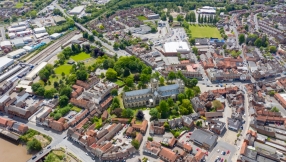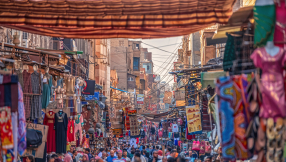Hunger trumps fear in cyclone-hit Myanmar delta
"I didn't care whether they got angry with me or not," the man in his late 40s said, recalling the moment he challenged officials deep in the Irrawaddy delta to release the small amount of aid left in their charge by Myanmar's military government.
"I walked up to them and said: 'We are not getting anything, and that is not good enough,'" the man said. He was too scared to give his name.
His dirty blue t-shirt, threadbare sarong and mismatched sandals spoke volumes about the hardships being endured in the delta, where the May 2 Cyclone Nargis left 134,000 people dead or missing and another 2.4 million clinging to survival.
With the junta too paranoid and too proud to accept an international aid effort comparable to the December 2004 tsunami, fewer than one in three survivors has seen any aid from the outside world, the United Nations says.
The government insists the immediate emergency relief phase of the disaster is over, but many villages still appear to have received no help at all.
The waterways of the onetime 'rice bowl of Asia' smell of death. Swarms of flies gorge on animal carcasses and corpses, either grotesquely swollen or rotting to the bone in the heat and humidity.
Two men from one small delta islet had traveled the two hours by boat to Dedaye to ask for help. In torn singlets and with teeth stained deep red from betel nut, they were desperate to tell of their plight to anyone who would listen.
Of the 250 houses in the village, Thaung Tan, six were still standing, they said - all that is left to shelter the 1,000 or so people who survived the cyclone's 120 mph (190 kph) winds and its 12 foot (3.5 meter) wall of water.
People in nearby village said that since the cyclone struck they had just five visits from outsiders, all of whom were private donors.
Elsewhere in the delta, thousands of people now devoid of any livelihood are resorting to full-time begging beside roads.
"Just throw something," droves of children shout at passing vehicles.
With checkpoints on roads leading out of Yangon to the delta, the flow of traffic is lower than it could be - cynics say deliberately so to dampen the enthusiasm of private donors.
Drivers are given yellow slips saying the relief effort has finished and the time has come to work on reconstruction. They also urge people not to throw any handouts to those waiting beside the roads because they are "just begging".
Police hammer home the message, shouting at the queue of waiting cars: "Go directly to where you want to go. Don't throw anything from the car. Know your own people."













